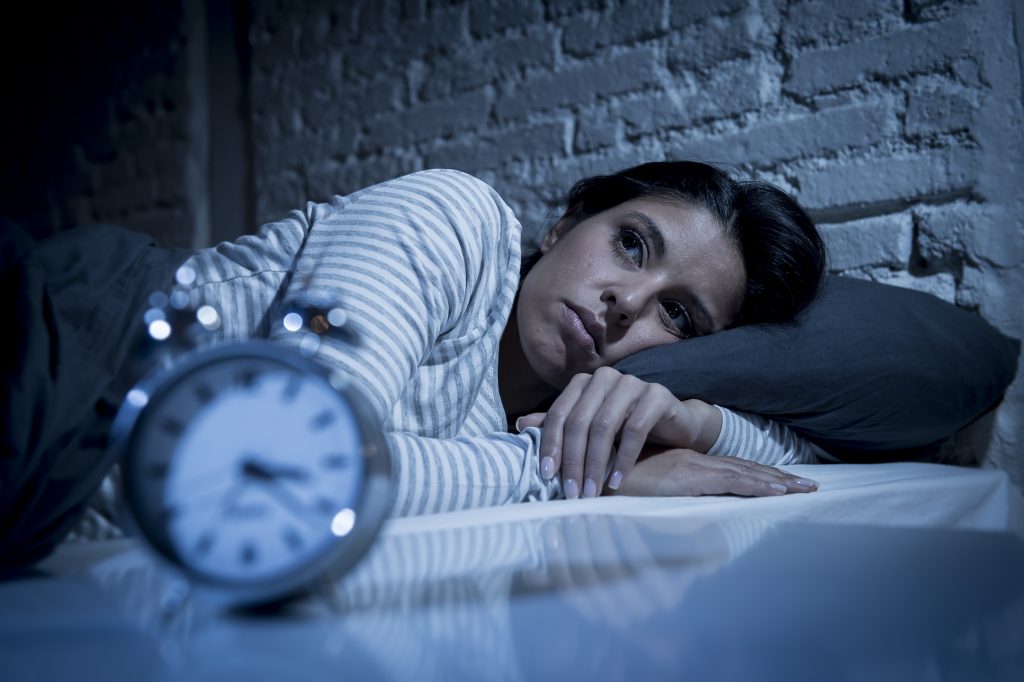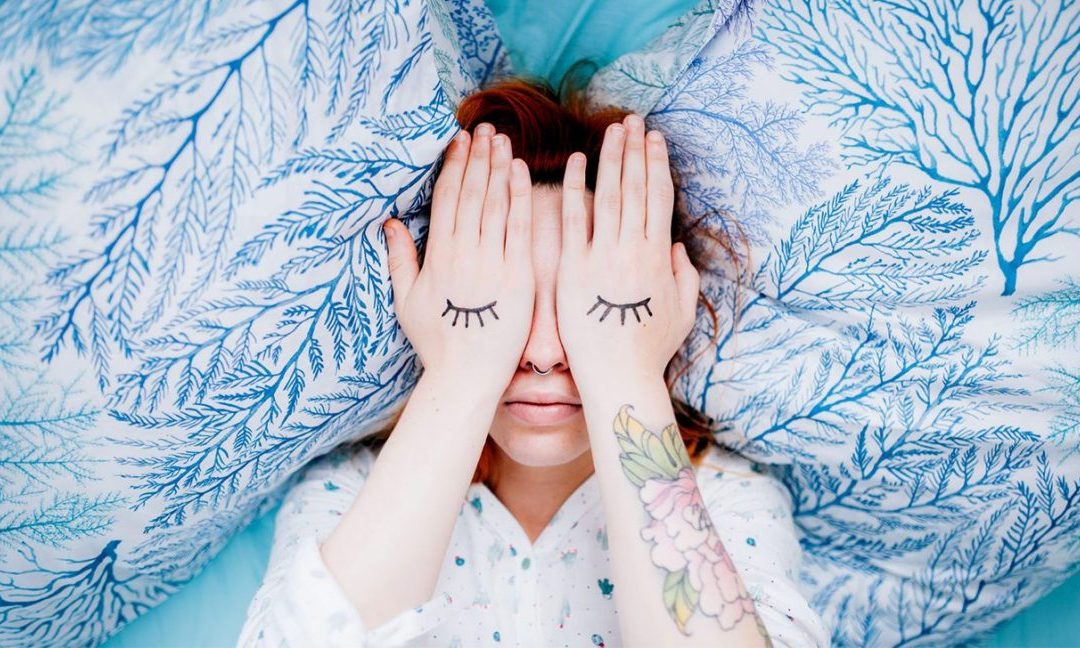Oh no!!! So it’s, I don’t know, 3 o’clock in the freaking morning, and I’m lying in bed, flipping my pillow around in frustration. I’m trying to stay hopeful that I can catch a few hours of shut-eye before I have to get up.
But I’ve been through this enough times to know the beast of insomnia can’t always be tamed. Or can it?
For anyone out there who has developed an expertise in fruitlessly counting sheep, we’ve rounded up a few strategies for finally catching those long-lost Zzz’s. And if you’re reading this at 3 a.m. because your mind won’t stop racing, don’t worry, there is hope.
We have tips for what you can do right now to improve your chances of getting (at least some) sleep.
What is insomnia?
Insomnia is the inability to fall asleep, stay asleep, or get the amount of sleep you need to wake up feeling rested. Insomnia can be acute (lasting one to several nights) or chronic (occurring three times a week for at least three months). Trusted Source Its symptoms include:
- difficulty falling asleep
- frequent wake-ups during the night
- waking up too early in the morning
- daytime sleepiness
- difficulty concentrating
- irritability
The causes of insomnia range from a variety of underlying medical or psychiatric conditions to medication side effects to simple lifestyle factors. So a little detective work is your first step. Try some of the tips below to rule out lifestyle factors that may be behind your sleeplessness.

Change your sleep environment
One possible reason you’re not getting enough rest is that your bedroom isn’t optimally set up for sleep. The ideal climate is cool, dark, and comfortable.
1. Invest in a good mattress and pillows
Uncomfortable bedding can lead to poorer sleep quality. A comfortable mattress increases your chances of a satisfying snooze.
2. Dim the lights before you go to bed
Exposure to bright lights just before bed might negatively affect your chance of getting quality — and quantity — sleep. Light suppresses the secretion of melatonin, the hormone that influences your circadian rhythms and tells your body it’s night-night time.
Assuming you don’t want to sit in the dark for hours, find the happy medium by dimming the lights as bedtime draws near.
Also consider changing your light bulbs to ones with a “color temperature” of less than 3,000 kelvins. These soft/warm varieties can reduce the light’s effects on your nervous system.
3. Turn off screens
The artificial (or “blue”) light emitted by screens can disrupt your body’s preparations for sleep by stimulating daytime hormones. Reduce your exposure by turning off TVs, phones, and computers at least an hour before bedtime.
If you can’t get away from blue lights before bedtime, consider making a small investment in blue-light-blocking glasses.
Can’t sleep but don’t want to give up late-night TV? At least dim the screen’s brightness, either manually or with the help of automated programs.
4. Minimize disturbing noises
Some outside noises — like a busy street or a neighbour’s barking dog — are beyond your control. Cover them up with the sound of a bedside fan, a white noise machine, or other sounds that help with sleep.
5. Keep it (dark and) cool
A dark, cool bedroom environment helps to promote restful sleep. Program the thermostat so that your bedroom’s temperature is between 60 and 75°F. Experiment to find out what temperature works best for you.
Use heavy curtains, blackout shades, or an eye mask to block lights. Charge your phone and laptop outside the bedroom — even the tiny bit of light from a charging device can disrupt sleep.
6. Ban work from the bedroom
Beds should be used only for sleep and sex — nothing else. Bringing work into the bedroom is a surefire way to discourage quality sleep.
Get into a sleep routine
Prime your body with the same sleep-promoting activities each day. Eventually, they’ll become habit, and so will awesomely restful sleep.
7. Stick to a schedule
Try to stay on the same sleep-wake schedule, even on weekends. If your alarm goes off at 6 a.m. Monday through Friday, set it for the same time on Saturday and Sunday. The early alarm might make you groan, but you’ll sleep better for it.
8. Set aside “worry time” during the day
Every day, spend about 15 minutes addressing problems, so they don’t sneak up when your head hits the pillow. Schedule tasks and resolutions in your calendar. If a particular stressor is keeping you up at night but has a clear end date, this can help get it off your nighttime mind.
9. Keep track
Record how much and when you sleep, your fatigue levels throughout the day, and any other symptoms you have. Sleep-tracking apps like SleepScore and Sleep Cycle can help with your recording efforts.
Sleep tracking serves two purposes. It can identify things you do that help or hurt your chances of a good night’s rest, and it’s a useful tool for a doctor or therapist, should you decide to see one.
Adopt healthier habits
A healthy body equates to healthier sleep. Take good care of yourself overall with a balanced diet, exercise, and good stress relief, and you’ll have fewer worries come bedtime.
10. Don’t smoke
Need another reason to quit? Smokers commonly exhibit symptoms of insomnia — possibly because their bodies go into nicotine withdrawal during the night. Trusted Source
11. Exercise
Moderate aerobic activity can improve both sleep quality and quantity. For best results, exercise at least three hours before bed so your body has enough time to wind down before you hit the sack.
12. Limit caffeine
It’s tempting to reach for coffee when you’re tired after a poor night’s sleep, but drinking caffeine can make it harder for you to fall asleep at night, creating a vicious cycle.
Research has shown that people who consume more caffeine spend less time sleeping and don’t sleep as well as those who avoid overdoing caffeine.
Can’t quit cold turkey? Try limiting caffeine to earlier in the day so it’s out of your system by bedtime.
13. Nap the right way
Just 10 to 20 minutes of napping during the day can help you feel more rested. A good power nap can improve your creativity and memory, too! But avoid snoozing any longer than 20 minutes, which could steal time from your nighttime slumber cycles.
14. Get outside
Increasing your exposure to natural light during the day promotes a healthy balance of that sleep hormone, melatonin. Sunlight tells those ancient receptors inside your body that it’s time to get going with the hunting and foraging and all things not sleep.
This helps reinforce the message to do the opposite when it’s dark.

15. Eat for sleep
Magnesium and B vitamins are two nutrients that may help enhance your sleep. Foods high in magnesium include:
- halibut
- almonds and cashews
- spinach
Also eat foods like these, which are rich in B vitamins:
- leafy green vegetables
- nuts
- legumes
16. Consider natural supplements
There are a lot of supplements on the market that may assist with sleep. Our recommendation is our Dual Synergiser NRF1 and NRF2, that can expand median lifespan by maintaining optimal cellular health!
NRF1 increases Mitochondrial production and those little guys are your “powerhouse” or batteries that never stop working in every cell in your body producing ATP (energy).
Mitochondria burn food and oxygen giving us the energy needed to maintain daily activities. The only issue with making more energy is the extra free radicals that are produced from the combustion of O2, that’s where NRF2 comes in.
NRF2 reduces oxidative stress by producing Superoxide Dismutase (SOD)and Catalase, 2 powerful antioxidant enzymes your body can make. Mitochondria can now work much more efficiently making more energy with very little side effects from oxidation, the cells are then in harmony!
17. Vent stresses
If designated worry time earlier in the day didn’t fully do the trick, spend some extra time writing down your anxieties. Loose-leaf paper works, but if you scrawl your sorrows in a journal or notebook, you can literally close the book on your worries (at least until morning).
Prep your body for sleep
Don’t jump straight from your last activity of the day into bed. Give your mind and body a chance to prep for sleep.

18. Try relaxation techniques
You’ve probably heard that meditation seems to be good for us in just about every possible way. One meta-analysis found that people who practiced meditation saw improvements in total sleep time and sleep quality.
Other relaxation strategies — like yoga, deep breathing, and progressive relaxation — are also effective tools for promoting good sleep.
19. Avoid large meals late in the evening
A big meal before bedtime could leave you too stuffed to sleep. Just getting horizontal can create that burny feeling in your throat. Everything slows down during the night, too, and it’s probably not great to have all that food sitting around in your digestive system.
20. Don’t drink alcohol right before bed
Booze might seem like an obvious choice for calming down pre-bedtime, but it can actually disrupt sleep cycles later in the night. You don’t have to give up the good stuff completely. Just drink it with dinner (around 6 o’clock) and skip the nightcap.
21. Turn off your brain
Don’t work, watch super-stimulating TV shows or movies, read complex material, or think too hard — about anything — before bedtime. See above about getting away from your screens. Working out your brain keeps your body awake.
Bottom line
What definitely won’t do you any good in the getting-to-sleep department: judgments (“I should be asleep”) and catastrophic thinking (“If I don’t get to sleep, I’ll mess up that presentation tomorrow, lose my job, and die tired and alone”).
Make the night easier by accepting insomnia for what it is. Let go of judgments and be gentle with yourself. The silver lining? You just might get to see a glorious sunrise.

